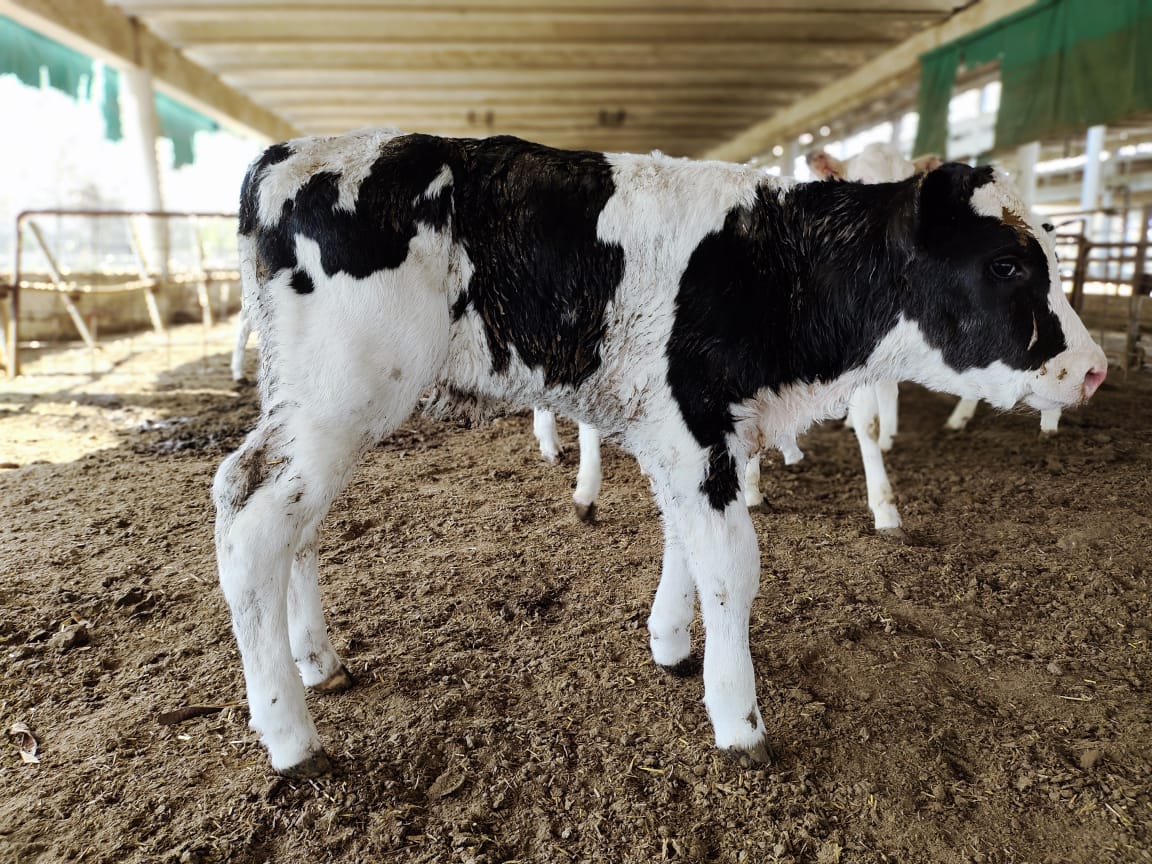LAHORE (27-02-24): The Embryology Lab, Department of Theriogenology of the University of Veterinary & Animal Sciences (UVAS) Lahore achieved a significant milestone in livestock breeding research through the birth of first Holstein Friesian (HF) calf by using In Vitro Embryo production (IVEP) at the Training & Research Demonstration Farm (TRDF) Ravi Campus Pattoki.
This success is the culmination of meticulous research and collaboration across departments. The process involved ovum pickup from pure Holstein Friesian specimens at the TRDF, followed by UVAS embryology lab’s maturation, fertilization and culture of oocytes. Subsequently, the resulting embryo was transferred to a synchronized recipient, resulting in a successful pregnancy and the birth of a healthy calf.
Chairman Department of Theriogenology & Embryology Dr Irfan-ur-Rehman Khan congratulated to the Embryology team under the guidance of Prof Dr Amjad Riaz, faculty members Dr Ali Husnain, Dr Talha Ashraf and Dr Muhammad Yaseen, postgraduate students Dr Melaad and Muhammad Abdullah all the researchers, technicians and staff involved in this groundbreaking project at the department and TRDF. He also said this achievement was possible only due to support from the University under the leadership of Emeritus Prof Dr Nasim Ahmad.
Prof Dr Nasim Ahmad said that this achievement underscores the commitment to pushing the boundaries of scientific innovation in livestock breeding and it also demonstrates the efficacy of advanced reproductive technologies in enhancing genetic progress and productivity in our cattle population. He said locally producing pure bred pure Holstein Friesian animals via IVEP not only lowers the expense of importing animals or embryos but also contributes to the nation’s sustainability while maintaining genetic integrity and milk production levels. Dr Nasim Ahmad mentioned optimism that with government support for such projects, Pakistan could rival with the world’s largest embryo producers in production, enabling it to compete effectively in the international market.




